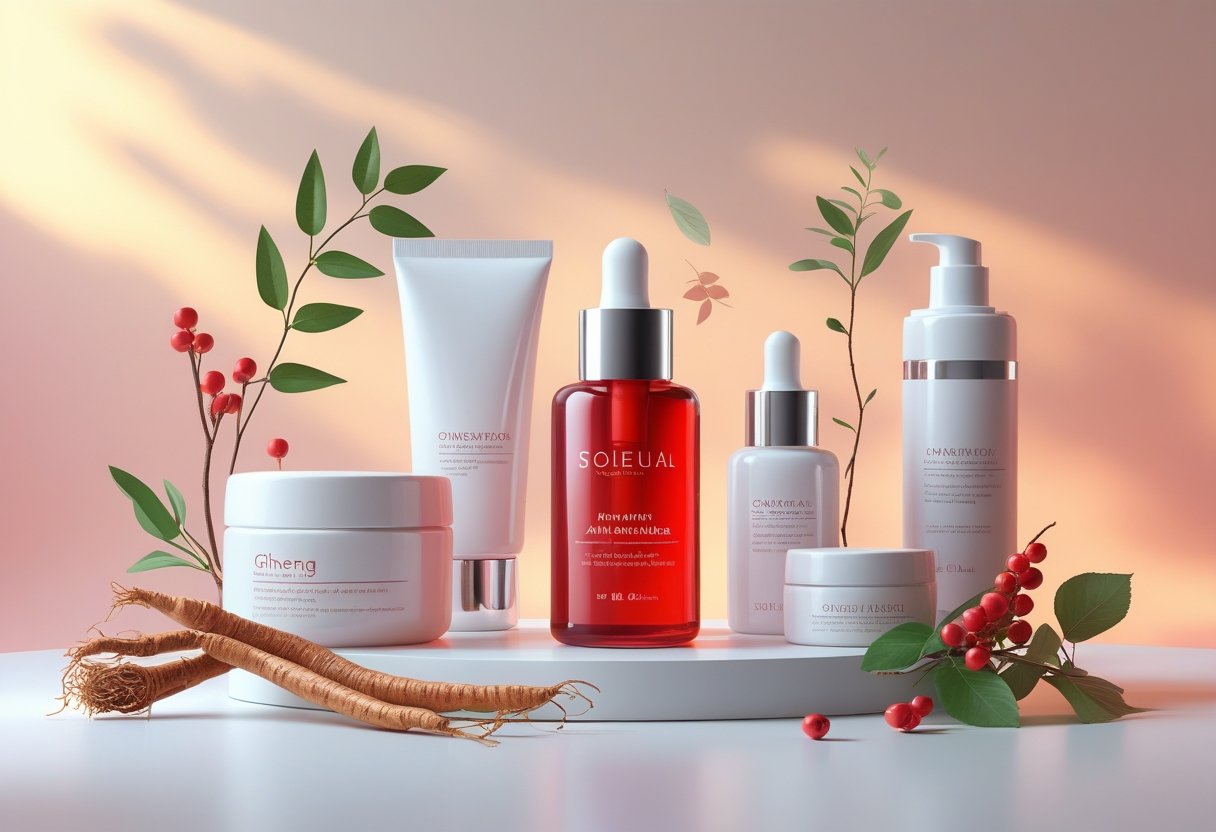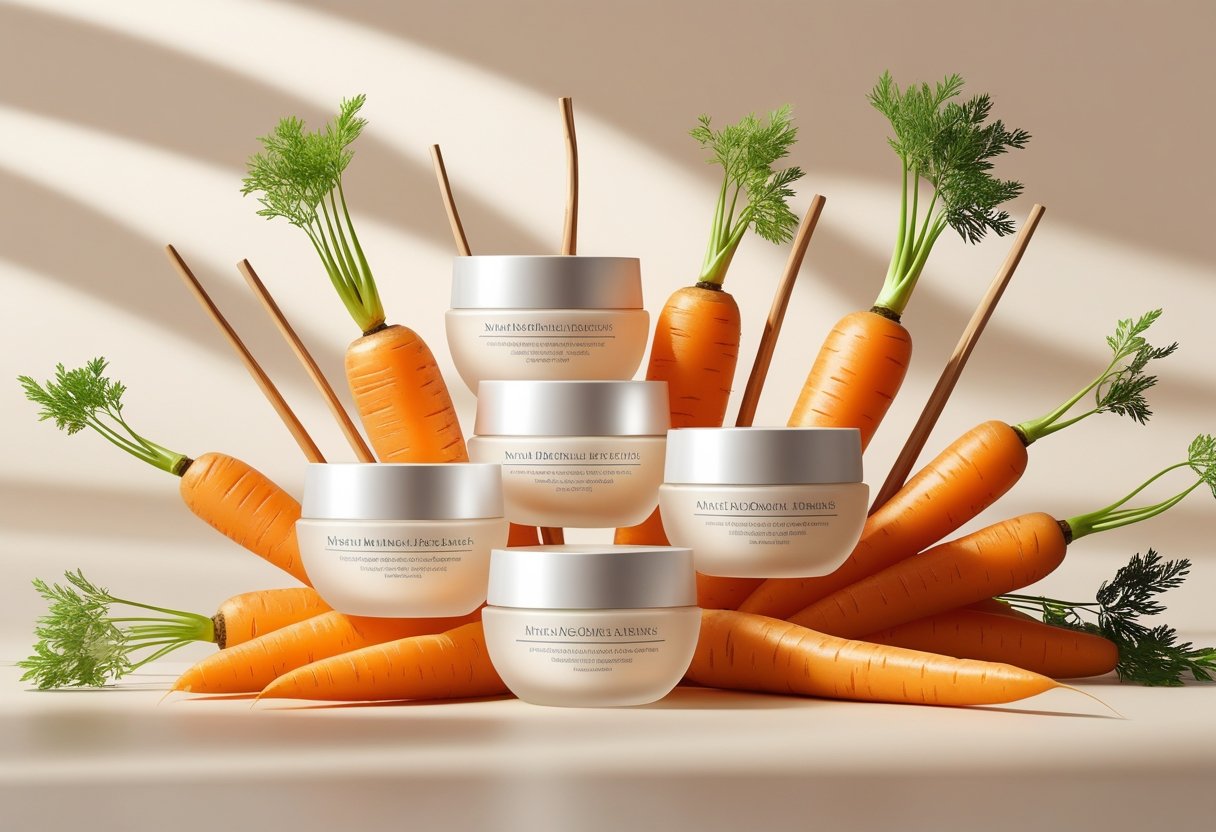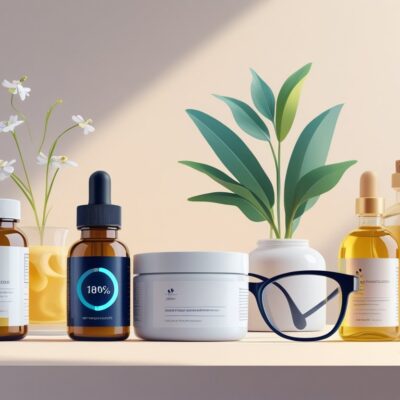Aging shows up on our skin—lines, wrinkles, and less firmness are just part of the deal. Still, with some solid, dermatologist-recommended products, you can keep those signs at bay if you stick with a routine.
Getting the right mix of proven ingredients can really make a difference in your skin’s health and how it looks as you get older. Retinoids, peptides, and antioxidants have shown real results in studies. But what works for one person might not work for another, so knowing your skin type helps when you’re picking products.
1) Medicube Red Erasing Serum

Medicube Red Erasing Serum packs in over 29 plant extracts to tackle aging skin. You’ll find tea tree oil and other botanicals that not only soothe irritation but also go after those classic aging signs.
It’s especially focused on fading brown spots and smoothing skin, thanks to niacinamide at a decent 4-5% dose. Used regularly, it can help with wrinkles and uneven tone.
With this serum, your skin makes more ceramides, which means a stronger barrier and better hydration. That’s good news for anyone who wants to lock in moisture and help their skin repair itself.
The antioxidants from the plant extracts help fight off environmental stressors—basically, they keep free radicals from wrecking collagen and elastin. You can use this serum on its own or layer it with other treatments. Either way, it fits into most routines and helps even out your complexion.
If you want a serum that does a bit of everything, this one’s worth a look. It sinks in fast, doesn’t leave a sticky mess, and works well under moisturizer or sunscreen.
2) Carrot & Stick Anti-Wrinkle Prevention Cream

Carrot & Stick is getting a lot of buzz as a leading anti-aging brand. The Derm Review even put their products on its best-of list for anti-aging creams.
The Defense Anti-Aging Serum goes after fine lines and wrinkles by helping your skin make more collagen.
It’s made for all skin types and is cruelty-free. Most folks use it daily to keep skin hydrated and shielded from daily stress.
They keep their formulas plant-based and skip the harsh stuff—no sulfates, parabens, synthetic fragrances, or other usual culprits.
Seven plant-based neuropeptides help lift and firm, while growth factors keep skin looking lively. The formula fights free radicals and tackles visible aging at the same time. People often notice smoother, silkier skin after sticking with it for a while.
Carrot & Stick avoids standard preservatives and thickeners, aiming for results without compromising skin or the environment. The serum comes in a one-ounce bottle, and for best results, you’ll want to use it daily.
3) Olay Regenerist Retinol 24 Night Moisturizer
The Olay Regenerist Retinol 24 Night Moisturizer brings together retinol and vitamin B3 in a unique blend. It’s made to tackle fine lines, wrinkles, and dark spots all at once.
Apply it at night and it goes deep into your skin’s surface layers, hydrating for a full 24 hours while working on texture and brightness.
Niacinamide, retinol complex, and amino peptides team up here to boost cell turnover and renewal. If you stick with it, you’ll likely notice smoother and firmer skin. It also helps with pores and makes your skin tone look more even.
No heavy residue here—it absorbs quickly, which makes it easy to use right before bed. This is a more affordable way to get retinol compared to prescription creams, and since it’s fragrance-free, it’s a good pick for sensitive skin.
The moisturizer gets a lot of love in reviews, with plenty of people seeing visible improvements after regular use.
4) Neutrogena Rapid Wrinkle Repair Serum
Neutrogena Rapid Wrinkle Repair Serum uses three main ingredients—retinol, hyaluronic acid, and glucose complex—in a light formula to fight signs of aging.
It helps reduce fine lines, wrinkles, age spots, and rough texture. You might even see results in as little as a week if you use it daily.
Beauty magazines have noticed—this serum snagged an Allure Best of Beauty award in 2018. The magic comes from Retinol SA, Neutrogena’s special stabilized retinol tech.
It fits easily into your daily routine and soaks in fast, moisturizing as it works. The hyaluronic acid keeps skin plump, while the retinol encourages fresh, new skin cells.
This one’s affordable and doesn’t require a prescription, but you’re still getting dermatologist-recommended ingredients. It’s a simple add-on for anyone wanting to upgrade their skincare game.
5) CeraVe Skin Renewing Retinol Serum
CeraVe Skin Renewing Retinol Serum takes on aging with a science-backed formula. It uses encapsulated retinol to gently encourage skin renewal.
Alongside retinol, you get hyaluronic acid and niacinamide for extra hydration and calming, plus three essential ceramides to keep your skin barrier healthy.
This serum is all about nighttime use—helping with fine lines, texture, and uneven skin tone. The MVE technology releases ingredients gradually, so you get the benefits without a lot of irritation.
Apply it after cleansing, before your moisturizer. The serum-cream texture goes on easily and feels comfortable—not greasy or sticky.
Dermatologists helped develop this product, and it’s gentle enough for anyone new to retinol. With regular use, you’ll notice smoother skin and fewer visible aging signs, all in one step.
Key Benefits of Products That Support Healthy Aging
Products made for healthy aging bring in nutrients and compounds that help your cells, lower inflammation, and support your body’s main systems. They don’t just work on the surface—these formulas can improve skin elasticity, help your joints, and even give you a bit more pep.
How Targeted Ingredients Work
Anti-aging products use specific compounds to fight cellular damage and oxidative stress. Antioxidants like vitamins C and E neutralize free radicals, which speed up aging.
Collagen peptides give your body the raw materials it needs for skin, joints, and connective tissue. They break down into amino acids, which then nudge your body to make more collagen naturally.
Key active ingredients include:
- Resveratrol for cellular protection
- Coenzyme Q10 for energy production
- Omega-3 fatty acids for inflammation control
- NAD+ precursors for metabolic function
These ingredients help your mitochondria and DNA repair themselves, supporting your body’s defenses instead of just hiding symptoms.
How well your body absorbs these ingredients—bioavailability—really matters. Products that boost absorption deliver nutrients right where you need them.
Long-Term Wellness Impact
Sticking with quality aging-support products can slow down age-related changes. Some studies suggest that regular use helps you keep your mind sharp and your body moving longer.
Cellular health improvements can start showing up in 3-6 months. People often mention more energy and better sleep around then.
For joints, benefits might pop up after 8-12 weeks, which lines up with how your body rebuilds collagen.
If you keep at it, you may notice better recovery from physical activity and more overall vitality. These products can help maintain muscle and bone, especially when you pair them with exercise.
Honestly, it’s a long game—the real payoff comes after years, not just months. Starting early seems to make the biggest difference in the long run.
Supporting Skin, Joints, and Vitality
Skin benefits show up as more elasticity, better hydration, and fewer fine lines. Collagen supplements can thicken skin and help it hold moisture within a couple months.
Vitamin C and hyaluronic acid work together to keep your skin’s structure intact. They focus on the dermis, which is where aging first starts to show.
Joint support comes from things like glucosamine, chondroitin, and collagen peptides. These keep cartilage healthy and help with stiffness, especially in weight-bearing joints.
Anti-inflammatory ingredients—think turmeric and omega-3s—go after joint discomfort at its source, helping you stay active.
Vitality enhancement happens as your body absorbs nutrients better and your metabolism works more efficiently. B vitamins and CoQ10, for example, help your cells make energy.
All in all, these products can help you stay independent and active as you age, supporting your body’s natural repair systems while tackling a bunch of aging concerns at once.
Choosing Evidence-Based Solutions for Aging
Solid research is the backbone for picking anti-aging products that actually work. Checking claims and thinking about safety matters, especially as you get older.
Understanding Clinical Research
Clinical trials are the gold standard for testing anti-aging products. Randomized controlled trials are best—they compare real treatments to placebos so you can see what’s legit.
Phase I trials look at safety in small groups. Phase II checks how well things work in more people. Phase III pits new treatments against the current standard, often with thousands of participants.
Peer-reviewed publications mean experts have vetted the research. Journals like The Journal of Gerontology or Aging Cell carry more weight than studies funded by the companies selling the products.
Size matters—a study with under 100 people probably won’t tell you much. And longer studies, over months or years, are more convincing than quick ones.
Meta-analyses pull together lots of studies to find real patterns, helping separate real benefits from flukes.
Evaluating Product Claims
Let’s be real—marketing can hype things up way past what the research says. If a product claims to “reverse aging” or be a “fountain of youth,” that’s usually a red flag.
FDA approval status is important, but remember, supplements don’t get as much oversight as prescription meds, so it’s smart to double-check things yourself.
Look for measurable outcomes in studies. Things like telomere length, inflammation markers, or memory test scores are more reliable than vague testimonials.
Check if the amount of an ingredient in a product matches what was used in successful studies—sometimes, it’s way less.
Third-party certifications, like from NSF International or USP, show what’s on the label is actually in the bottle.
Conflict of interest disclosures matter, too. If researchers get paid by the manufacturer, take the results with a grain of salt. Independent research is usually more trustworthy.
Safety Considerations for Older Adults
As people get older, they tend to use more prescription drugs, which means medication interactions pop up more often. Omega-3 supplements can increase the blood-thinning effects of warfarin. Vitamin K also plays a role and can interfere with anticoagulant meds.
It’s no secret that kidney function tends to go downhill with age, which changes how the body handles supplements. If someone’s kidneys aren’t working so well, high doses of vitamin D or magnesium can build up and cause trouble.
Absorption changes with age and that can mess with how well supplements work. For example, older adults make less stomach acid, so they don’t absorb vitamin B12 as well. Calcium carbonate needs acid to be absorbed, but calcium citrate doesn’t care as much.
Sometimes, the usual adult dose just ends up being too much for older folks, especially if their metabolism is slower or they’re lighter than average.
Mixing a bunch of supplements? That’s when medical supervision really matters. A healthcare provider can keep an eye out for side effects and tweak doses based on lab results and how someone’s actually feeling.




